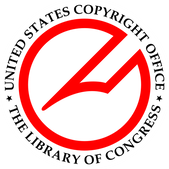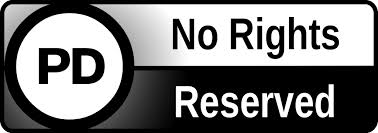 Copyright is a form of protection provided by the laws of the United States to the authors of "original works of authorship," including literary, dramatic, musical, artistic, and certain other intellectual works. This protection is available to both published and unpublished works. Section 106 of the 1976 Copyright Act generally gives the owner of copyright the exclusive right to do and to authorize others to do the following: * To reproduce the work in copies or phonorecords; * To prepare derivative works based upon the work; * To distribute copies or phonorecords of the work to the public by sale or other transfer of ownership, or by rental, lease, or lending; * To perform the work publicly, in the case of literary, musical, dramatic, and choreographic works, pantomimes, and motion pictures and other audiovisual works; * To display the work publicly, in the case of literary, musical, dramatic, and choreographic works, pantomimes, and pictorial, graphic, or sculptural works, including the individual images of a motion picture or other audio visual work. It is illegal for anyone to violate any of the rights provided by the copyright law to the owner of copyright. These rights, however, are not unlimited in scope. Sections 107 through 121 of the 1976 Copyright Act establish limitations on these rights. In some cases, these limitations are specified exemptions from copyright liability. One major limitation is the doctrine of "fair use," which is given a statutory basis in section 107 of the 1976 Copyright Act. In other instances, the limitation takes the form of a "compulsory license" under which certain limited uses of copyrighted works are permitted upon payment of specified royalties and compliance with statutory conditions. For further information about the limitations of any of these rights, consult the copyright law or write to the Copyright Office. According to the U.S. Department of Justice, first-time copyright infringement cases can carry a fine of up to $250,000 and up to five years in prison. If you get caught more than once in a copyright-infringement case, you could face additional fines of up to $250,000 and up to 10 years in prison. WHAT IS NOT PROTECTED BY COPYRIGHT. Ideas and facts are not protected by copyright. – it is the tangible expression of facts and ideas that copyright law protects. Subsequently, titles, slogans, names, and short word combinations are not generally eligible for copyright protection. In its most general sense, a fair use is any copying of copyrighted material done for a limited and “transformative” purpose, such as to comment upon, criticize, or parody a copyrighted work. Such uses can be done without permission from the copyright owner. In practice, if you're only quoting a few lines from a full-length book, you are most likely within fair use guidelines, and do not need to seek permission. Most quotations, because of their short size, are not considered copyright infringement because they fall under the "fair use" clause of U.S. copyright law. But to emphasize: every case is different. If you're at all concerned about infringement, check with an intellectual property attorney before you publish.  A work that is “in the Public Domain” is a work that is completely free for anyone to use in any way they like. It has entered the Public Domain either because the term of the copyright expired or the work was never covered by copyright in the first place. An example of this would be the works of William Shakespeare. If a book, song, movie, or artwork is in the public domain, then it is not protected by intellectual property laws (copyright, trademark, or patent laws)—which means it's free for you to use without permission. The general rule is that any work published before 1923 is in the public domain. However, works published after 1977 will not fall into the public domain until 70 years after the death of author, or, for corporate works, anonymous works, or works for hire, 95 years from the date of publication or 120 years from the date of creation, whichever expires first. In case you're wondering, the "Happy Birthday" song is indeed, in the public domain. Generally, you can publish and sell public domain eBooks. ... For example, to sell on Amazon Kindle Direct Publishing (KDP), you typically must add original content to the public domain book, such as illustrations or a study guide. Quotes are considered intellectual property, which is protected under the law. ... When a quote passes into the public domain, it's almost always because it's old enough that its copyright has expired. It is a good practice to discuss your copyrights with your attorney and add them to your will or trust. Even though the copyright doesn't expire until 70 years after the death of the author, your life may be prematurely cut short, and then your heirs will need to have access to your copyright. Ask your attorney to draft a simple codicil to your will or trust which assigns all your copyrights of published and "works in process" to either a specific individual, organization, trust, or in general, to your future heirs. You can't predict if your work will become more valuable after your death... but you can protect your interests long after you've "shuffled off this mortal coil." Learn more at the US Copyright office website: https://www.copyright.gov
0 Comments
Leave a Reply. |
WelcomeYou'll find some interesting stuff here... some Op Eds, some Information, Book Reviews, and More. Poke around the categories and see what ruffles your feathers... in a good way! Archives
July 2024
Categories
All
|
 RSS Feed
RSS Feed